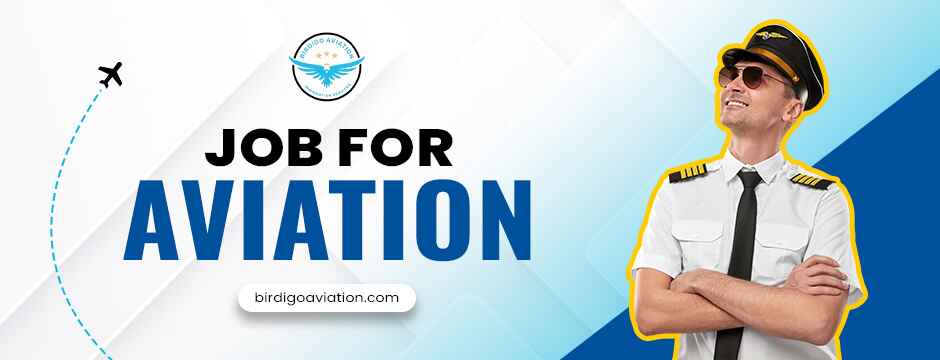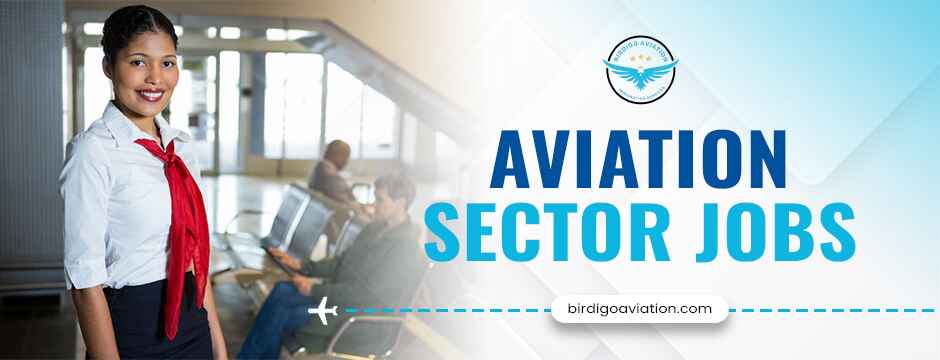If you’ve just completed your 12th grade and dream of a dynamic career that offers travel, prestige, and endless growth, the aviation industry might be your perfect destination. With the global demand for aviation professionals on the rise, there has never been a better time to consider this field. From becoming a commercial pilot to working as cabin crew, ground staff, air traffic controller, or aviation manager—opportunities are abundant for students who are ready to learn and adapt.
Unlike many traditional career paths, aviation opens the door to international exposure and fast-paced development right after high school. However, success in this competitive field requires careful planning, strategic skill-building, and the right training. Whether you’re passionate about flying or interested in operations, this guide will walk you through the essential steps to build a rewarding Career in Aviation Industry after 12th.
Identify Your Interest and Career Path in Aviation
The first and most crucial step is understanding the various roles available in the aviation sector. Here are some popular career paths:
- Pilot (Commercial or Private)
- Cabin Crew (Air Hostess/Flight Steward)
- Ground Staff
- Aircraft Maintenance Engineer (AME)
- Airport Operations Manager
- Air Traffic Controller
- Aviation Safety Officer
- Travel and Tourism Expert (with Aviation focus)
Your career choice will determine your educational and skill requirements. For example, becoming a pilot requires science subjects in 12th and flying training, while ground staff roles may be open to students from any stream.
Choose the Right Stream in 12th
Some job for aviation require specific academic backgrounds. For instance:

- Science stream with Physics and Mathematics is mandatory for becoming a commercial pilot or aircraft maintenance engineer.
- Any stream (Science, Commerce, Arts) is acceptable for cabin crew, airport ground handling, customer service, and ticketing roles.
Your 12th-grade subjects will shape your eligibility for certain aviation courses, so plan accordingly if you’re still in high school.
Enrol in Professional Aviation Courses
Once your 12th exams are complete, enrolling in a reputed aviation training institute is the next big step. Here are some popular programs:
Pilot Training Courses
- Commercial Pilot License (CPL)
- Private Pilot License (PPL)
- Simulator Training
Cabin Crew Courses
- Diploma in Cabin Crew Training
- Certificate in Air Hostess/Flight Steward Training
Ground Staff & Management Courses
- Diploma in Airport Ground Services
- BBA in Aviation Management
- Diploma in Aviation and Hospitality Management
Technical & Safety Courses
- Aircraft Maintenance Engineering (AME)
- Diploma in Aviation Safety and Security
Choose an institute with DGCA or internationally recognised accreditations, modern facilities, real-world training, and placement assistance.
Develop Soft Skills and Grooming
For a Career in Aviation Industry, technical knowledge is just one side of the coin. Airlines and aviation firms prioritise professionals with:
- Excellent communication skills
- Confidence and a positive attitude
- Customer service mindset
- Multilingual abilities (advantageous)
- Good grooming and personal hygiene
- Teamwork and leadership capabilities
Invest in soft skill training and grooming workshops that help you meet the industry’s high standards for customer-facing roles.
Gain Physical and Medical Fitness
Most aviation roles require candidates to be medically and physically fit. For example:
- Pilots must pass rigorous Class 1 medical tests (vision, hearing, heart health, etc.)
- Cabin crew must meet height, weight, and BMI requirements and have no visible tattoos
- Ground staff and AMEs may also need basic fitness and stamina
Schedule your medical evaluations early to ensure you’re eligible for your chosen career path.
Improve Your English and Communication Abilities
Aviation is an international industry where English is the primary language of communication. Aviation sector jobs prefer candidates with:

- Clear spoken English
- Understanding of aviation vocabulary
- Basic writing/reporting skills for communication and incident reporting
Take up aviation-focused English communication courses or engage in regular practice to boost your language confidence.
Build a Professional Resume and Apply for Internships
A well-structured resume with academic records, certifications, and soft skills can help you stand out. Many aviation institutes offer internship programs at airports or with airline companies. These internships allow you to:
- Understand real-time operations
- Gain hands-on experience
- Build contacts with aviation professionals
- Improve your chances of getting hired
Appear for Aviation Recruitment Exams or Interviews
Airlines, airports, and private aviation firms conduct recruitment drives for cabin crew, pilots, ground staff, and engineers. Be prepared for:
- Written exams (technical/aptitude/English)
- Group discussions
- Personal interviews
- Skill demonstrations (e.g., walk, talk, and etiquette for cabin crew)
Stay updated on recruitment opportunities via job portals, institute placement cells, and company websites.
Consider Pursuing Higher Education in Aviation
If you wish to pursue managerial or long-term roles in aviation, higher education will add value. Some options include:
- BBA/B.Sc. in Aviation
- MBA in Aviation Management
- MSc in Air Transport or Airport Management
- Postgraduate Diplomas in Aviation Law, Logistics, or Finance
These degrees help you transition into leadership positions like Airport Manager, Airline Revenue Analyst, or Operations Head.
Stay Updated and Committed to Continuous Learning
The aviation industry constantly evolves with technology and regulations. To thrive long-term:
- Keep updating your skills and certifications
- Stay aware of DGCA guidelines, IATA protocols, and global aviation trends
- Attend workshops, webinars, and aviation expos
- Join professional groups or aviation alumni networks
A learning mindset will help you adapt to changes, explore new career avenues, and grow faster in your field.
Wrapping Up
Starting a Career in Aviation Industry after 12th can be both exciting and rewarding—if you make informed decisions and receive the right guidance. From choosing your specialisation to acquiring technical skills, communication training, and industry exposure, each step contributes to building your dream career in the skies or on the ground.If you’re ready to fast-track your aviation journey, Birdigo Aviation is your trusted co-pilot. With industry-aligned programs, experienced faculty, and real-time training modules, we prepare you for take-off—equipping you with the knowledge, certifications, and confidence needed to succeed in India’s fast-growing aviation sector. Visit our website to explore courses and counselling options today.

